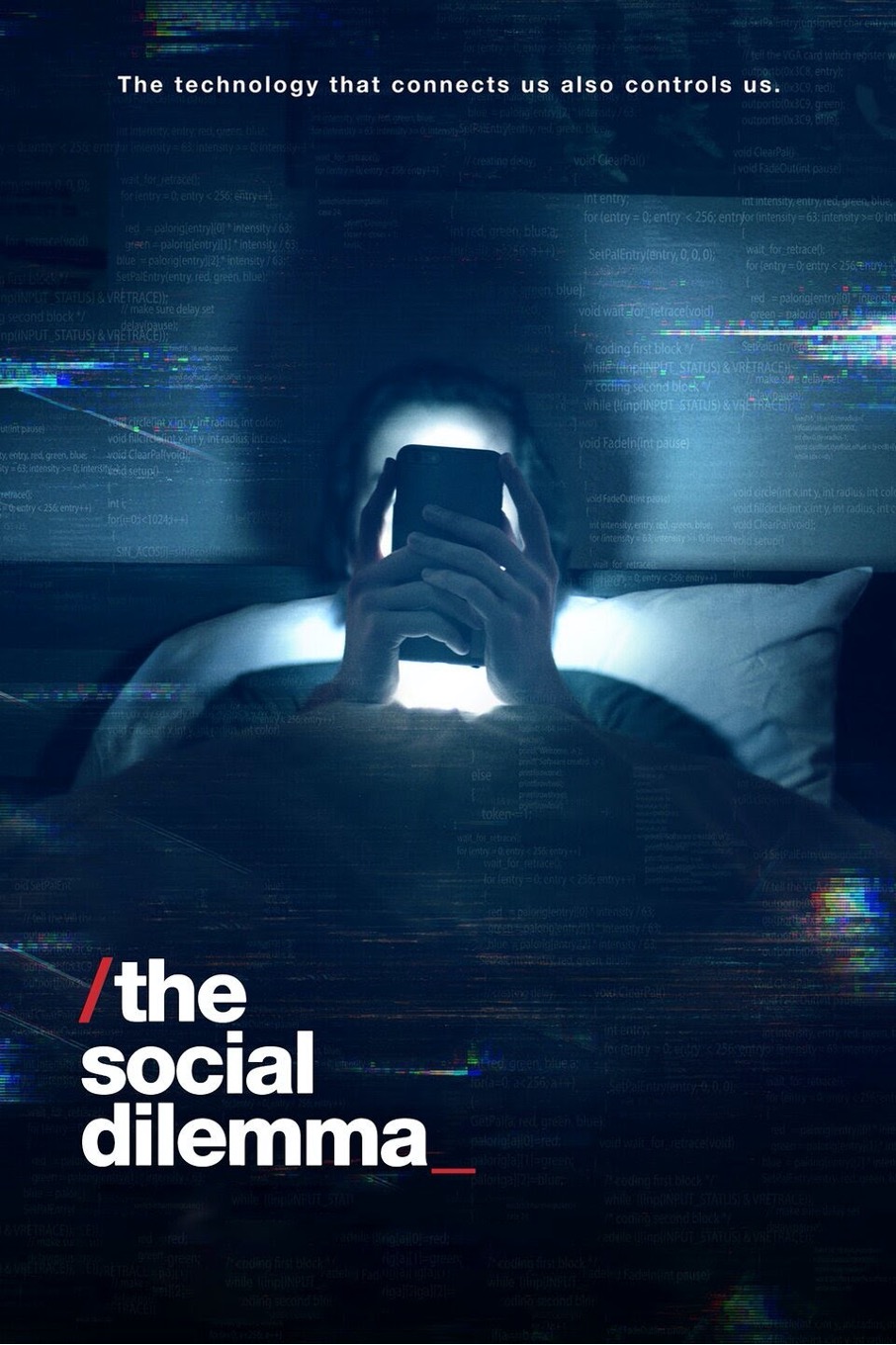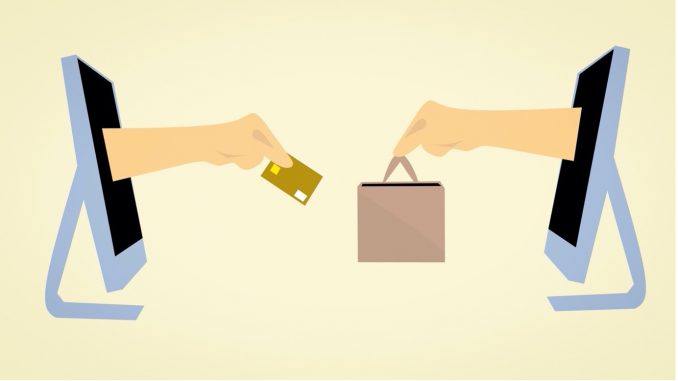
In this digital age, as technology is becoming more and more advanced, with the invention of the internet and the wide use of digital devices, almost everything, from socialising to online banking, can be accessed through the internet on a mobile device. The coronavirus outbreak caused the limitation to travel, the only way the world can stay connected is through social media. Due to the pandemic, the number of social media users across the world have increased by 5% within a year in 2021 (“How Many People Use Social Media in 2021 [Updated Jan 2021]”, 2021). Exacerbating political division and rampant misinformation have characterized the year 2020.
‘The Social Dilemma’, directed by Jeff Orlowski, is an award-winning Netflix film released in 2020 which examine the drawbacks of social networking platforms. The social dilemma is set in the dark hinterland of Silicon Valley. This documentary/ drama amalgam focused on how some of the most successful Social Media Platforms tracks users’ activity to sell personalized advertisements and create a vicious circle of addiction that It provides bleak imagery of how social media brought danger to democracy and influences both our behaviours and perception. Former employees at Facebook, Google, Twitter, and Instagram speak up about the core issues in the documentary. Among the other topics covered in the program are how technology corporations have caused political misinformation, ethnic conflict, mental illness, and suicide rates.
Ethical Issues with the Social Media Platforms Nowadays
Human as a product?
“If you don’t pay for the product, YOU are the product,” ----- Tristan Harris, formerly responsible for design ethics at Google

In recent decades, as suggested by the Netflix show, one of the main concerns of social media platforms is that human minds are traded off like assets by platform businesses like Facebook, Instagram and etc. The way they earn money is simply through the advertisement you’ve seen. Using the representation of A.I. in the file, the way in how algorithms gain attention from users was shown. The producers have shown this through the character that is the AI persona in three outfits, suggesting the three main ways algorithm manage to gain our attention, including, engagement, growth, and advertisement (Armstong, 2020). Many social media businesses succeed by grabbing as much of our attention as possible and would then sell it to the highest bidder.
Manipulation of the human mind
How many times have you found yourself scrolling the wall of your social media when you are having dinner with your family? When is the last time you have had bonding time or an actual conversation with someone?

One important issue with the algorithm is that social media continuously recommends news and information sources, whether reliable or not, that reinforce users’ present ideas, this means that the algorithm will only show you what it thinks you may want to see according to your previous history (McLane, 2020). tech businesses have been including more artificially intelligent algorithms that manipulate our mind into their products in an attempt to gain our attention. As suggests by Armstrong (2020), The Social Dilemma examines how consumer experience customization extends to the news we get, allowing two conflicting kinds of “truth” to exist — and create the conditions whereby each party becomes increasingly certain about their own reality and more stubborn.
Addiction?

According to Mike Brooks, Ph.D.(2019), due to the “Vegas effect,” we have a hard time rejecting our screens. This means this will cause us to get addicted but at the same time suggest that it is a need to scroll your feeds. An example of such can be seen in Facebook. As suggested by the developer of Facebook’s “like” button, Justin Rosenstein, the notion of the “like” button was established to share optimism and spread positivity, however, it is the other way around at the current situation that it has since evolved into a demand for approval among Generation Z. Another example of how social media manipulate our actions can be seen with the example of Snapchat that the aesthetic of the user is affected by the Filters in the app, causing the phenomenon of “Snapchat Dysmorphia” which describe people who do plastic surgeries to look picture perfect, like how they would look under a filter.
Threat to Democracy

Bond et al. (2012) suggested that self-guided information seeking and, potentially, self-serving conduct result from online political mobilization messages. According to the Oxford Internet Institute’s 2020 media manipulation report, social media manipulation is becoming a growing threat to democracy as more governments utilize it to sway public opinion. Not to mention there are also ways that social media maybe used as a political tool by swaying individuals toward a specific way of thinking. Some recent examples of how social media have political impacts can be seen in the past elections in the U.S. while social media is used for a variety of reasons and to achieve a variety of objectives by each candidate (Olaniran and Williams, 2020).
Conclusion:
The movie, The Social Dilemma, was a single-sided movie but with a lot of information. The film was successful in making viewers reflect on the ethical issues mentioned in the film. Another thing that the producers suggested through the film is that politicians are not able to fix the problem as they are clueless about what is going on. On the other hand, technicians in social media companies should come to their senses and think of solutions or methods to change or solve the negative impacts social media platforms have on users. The film also brought up the possibility that these activities are unethical. Social media’s prevalence and use in modern society are undeniable, but we must take care to manage the potential dangers associated with it.
“Every single action you take is carefully monitored and recorded.” ----- Jeff Seibert, Formerly Executive Serial Tech Entrepreneur at Twitter

The most important lesson from The Social Dilemma is that everything we read online should be questioned especially when the information we received seemed to be tailored to our taste. It is also important to think before you act when you are on the internet as things will be on permanently. Authorities must be at the forefront of the solution, beginning with significantly stronger laws on firms that track and use personal data. We should also reject the “attention extraction model,” which portrays social media as friendly and supportive.

This work is licensed under a Creative Commons Attribution 4.0 International License.
References
Armstong, D., 2020. Review; The Social Dilemma (2020). [online] reelgood. Available at: <https://reelgood.com.au/reviews/review-social-dilemma-2020/>.
Bond, R., Fariss, C., Jones, J., Kramer, A., Marlow, C., Settle, J. and Fowler, J., 2012. A 61-million-person experiment in social influence and political mobilization. Nature, 489(7415), pp.295-298.
Brooks, M., 2019. The “Vegas Effect” of Our Screens. [online] Psychology Today. Available at: <https://www.psychologytoday.com/us/blog/tech-happy-life/201901/the-ve>.
McLane, L., 2020. The Social Dilemma: Social Media’s Impact on Society – The Hotchkiss Record. [online] The Hotchkiss Record. Available at: <https://hotchkissrecord.org/2020/10/the-social-dilemma-social-medias-impact-on-society/>.
Minow, N., 2020. The Social Dilemma movie review (2020) | Roger Ebert. [online] Rogerebert.com. Available at: <https://www.rogerebert.com/reviews/the-social-dilemma-movie-review-2020>.
Oberlo.com. 2021. Average Time Spent On Social Media in 2021 (by Platform). [online] Available at: <https://www.oberlo.com/statistics/average-time-spent-on-social-media#:~:text=On%20average%2C%20consumers%20are%20expected,spent%2039%20minutes%20on%20Facebook.>.
Oii.ox.ac.uk. 2021. Social media manipulation by political actors now an industrial scale problem prevalent in over 80 countries – annual Oxford report. [online] Available at: <https://www.oii.ox.ac.uk/news/releases/social-media-manipulation-by-political-actors-now-an-industrial-scale-problem-prevalent-in-over-80-countries-annual-oxford-report/>.
Olaniran, B. and Williams, I., 2020. Social Media Effects: Hijacking Democracy and Civility in Civic Engagement. Platforms, Protests, and the Challenge of Networked Democracy, pp.77-94.
The Social Dilemma. 2020. [film] Directed by J. Orlowski. United States: Netflix.